How "guerrilla warfare" becomes a separate type of the Armed Forces
There has been a lot of talk about territorial defense lately unlike in previous years. One of the reasons for the increased attention is that the activities of the territorial defense forces have finally been "incorporated" into the legislative framework: in the summer of 2021, the Verkhovna Rada of Ukraine adopted the Law "On Fundamentals of National Resistance" and – in this regard – the Law 1 "On Amendments to Article 1 of the Law of Ukraine "On the Number of the Armed Forces of Ukraine" on increasing the number of the Armed Forces of Ukraine. By June 2022, after several stages of reforming, the Territorial Defense (TD) units should become a separate type of the AFU.
– The army is a huge super-powerful machine. But it is excessively bureaucratized and very inflexible. For it to operate at full strength, it should be started, warmed up and accelerated… Then it will perform its function as the most powerful tank, – press officer of the "North" tactical force Olena Mokrenchuk believes.
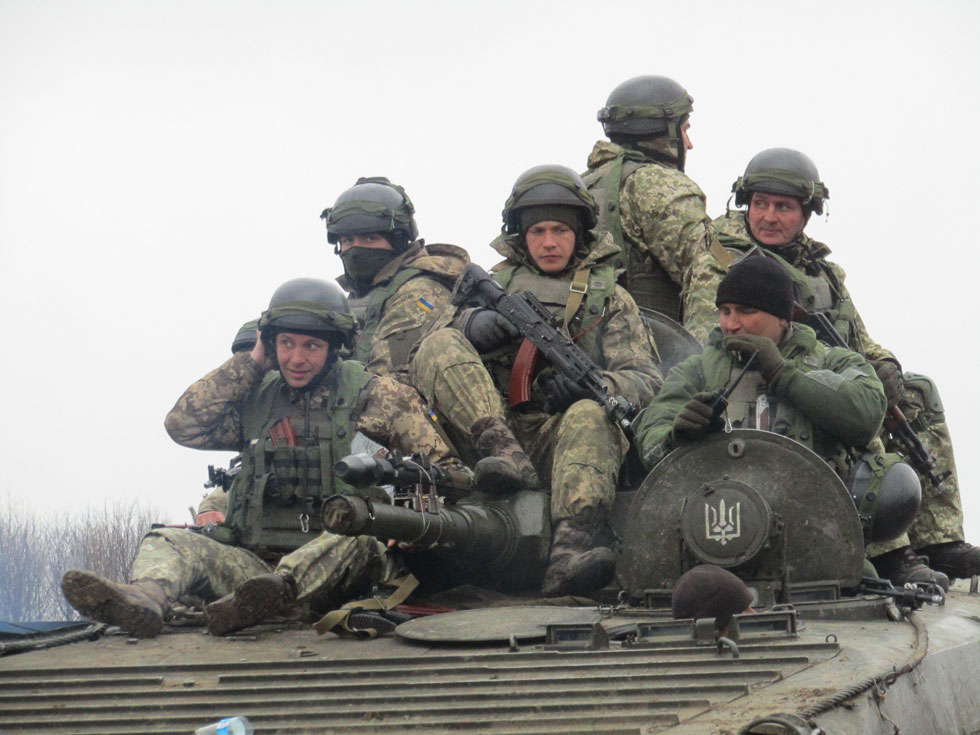
Password "Pants"
When in 2014, Ukraine faced the need to create an army (not just an army, but the entire defense system), we had to start from scratch. It is difficult to say now what the weakest point was in the Ukrainian army at the beginning of the Russian aggression, because the army was a huge weak spot.
– In fact, only five brigades were more or less combat-ready in the spring of 2014, - Lieutenant Olena Mokrenchuk, who has been actively "volunteering" since 2014, recalls. – We as a society did not immediately understand that this is a real war…
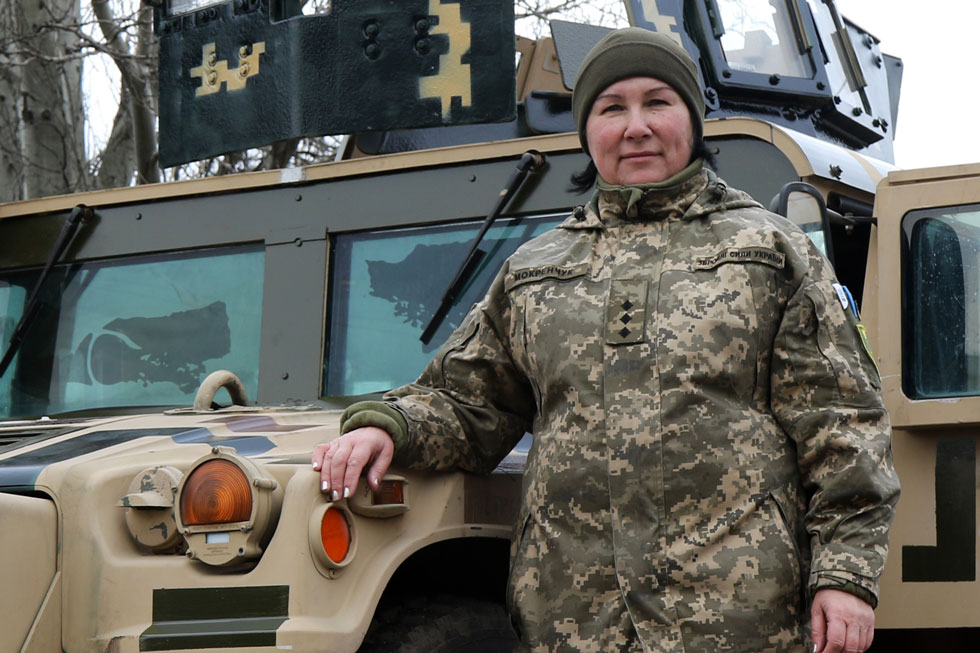
Literally everything was the problem at that time. The clothes found in the warehouses "fell apart" in their hands; ammunition was often unserviceable due to prolonged improper storage; logistics to provide the military with food and everything necessary was more slowly than movement of troops; the mobilized persons had no experience and were psychologically unprepared for what was happening.
– In addition, many female volunteers had a kind of "motherly" attitude towards the military at that time, - says Ms. Olena. – We treated even the much older soldiers, given all their courage and strength, as confused, psychologically disoriented children. We wanted to pity and fondle them, to help them as much as possible. The main words used for the military at that time were "sonnies", "our boys" and "sunshines".
Subsequently, when the military felt real support – both moral and material, our army gradually became like a real army, and the military was no longer ashamed to prove itself as Defenders.
– These were real soldiers already in the spring of 2015, whom we began to perceive not as confused boys in the need of help, but as strong experienced soldiers who can protect us.
Thus, the army had to be reformed and put in order as quickly as no other system – otherwise the country could simply disappear from the map. And according to the servicemen with whom OstroV spoke, it succeeded.
According to Olena Mokrenchuk, it was the volunteer battalions and volunteers in 2014 that gave the Armed Forces of Ukraine time to recover, so to speak. In that period, volunteers fully took over the functions of "suppliers". They provided military with closes and tools, fed them and gave psychological support…
– I remember that people in many units did not have normal pants and asked for them from volunteers, - Olena tells. – This word was literally our password. Often the driver, with whom I came to the guys in distant positions, gave one of the guys his own pants, having literally taken them off. Our battalion commander, to whom we brought three sets of uniforms to the hospital, gave all three to his soldiers as soon as he returned to his position after the operation.
As for the volunteer battalions, which at that time were formed spontaneously, "from below" – they did not just openly oppose the enemy, while the Armed Forces were forced to act covertly, because that was the political situation at the time. They also risked being outlawed in fact, in the status of illegal armed groups – that is, they could be subjected to the harshest repression of the occupiers at any time in the event of our defeat.
Speaking about this, Olena Mokrenchuk does not avoid the phrase "guerilla warfare" and is not afraid of it. Fortunately, the volunteer battalions were soon "legitimized" and included in the AFU structure. Until recently, territorial defense forces were another variant of guerilla warfare (or semi-guerilla warfare) – and the mechanism for their "legalization" on a national scale through the adoption of the Law on Territorial Defense and National Development was found quite recently.
Protection "from within"
In everyday, non-legal language, territorial defense units are designed to protect each region from any manifestations of separatism, terrorism and other forms of armed aggression as effectively as possible. After all, the events of 2014 proved that we must always be ready to do everything to ensure that our villages and cities do not receive the status of "uncontrolled territories", which very quickly becomes "temporarily occupied" by the efforts of the enemy.
Territorial defense, which is a structural part of the Armed Forces of Ukraine, differs in that it consists of people with very different experiences, different ages and professions, different levels of physical and military training. These can be both professional soldiers with combat experience and those who have not even served in the army; both in-demand professionals in a narrow field and those with the status of unemployed. These people are registered in a certain military unit, but do not always lead a barracks lifestyle, live at home and work in their civilian work. The only thing is that according to the army principle, they are part of units (company, platoon or brigade), at the level of which they know each other and know how to "work" with each other, have contacts with each other, receive proper training and know how to behave in case of an armed threat to the hometown, village or district. Their task will then be to organize the protection of the authorities and critical infrastructure, and to hold out until the main forces of the military units, powerful, but not as mobile as we would like, arrive at the scene.
Prior to the entry into force of the above-mentioned laws, the activities of the TD were mostly limited to periodic exercises and – in particular, in 2014 – participation in hostilities of individual units. The next territorial defense exercises in the Luhansk region took place at the end of September 2021. At that time, more than two hundred men from the Sievierodonetsk district of the Luhansk oblast underwent a basic course in tactics in the Kreminna forests for ten days under the guidance of experienced instructors, preparing for the assigned tasks.
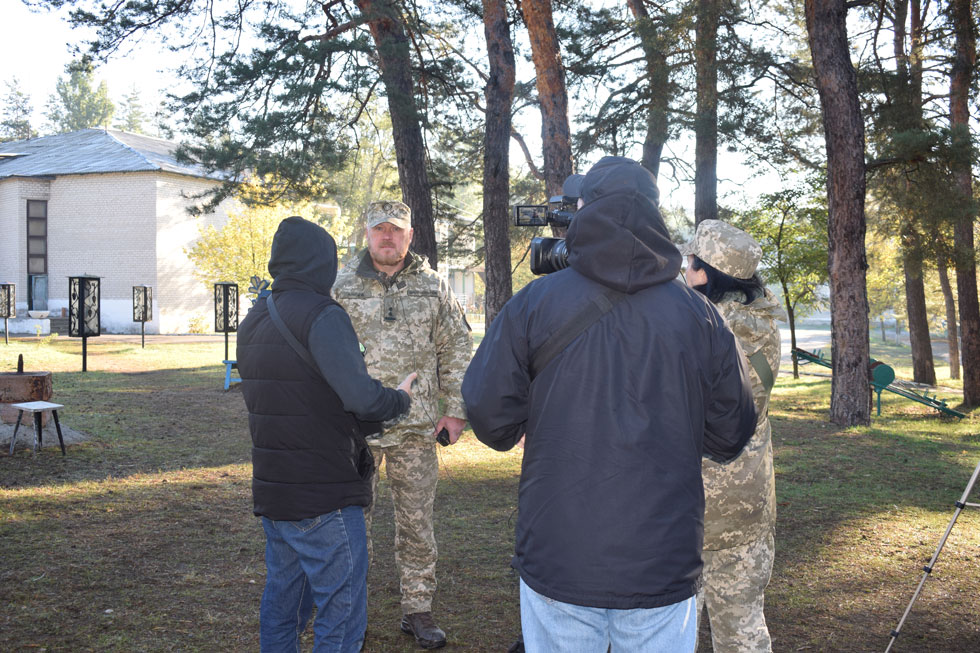
Lieutenant Colonel Rostyslav Rehinsky, commander of a separate territorial defense battalion, talks to journalists
According to commander of the Territorial Defense Battalion, Lieutenant Colonel Rostyslav Rehinsky, on the last day of the exercise, the participants of the training camp conducted company tactical training without combat firing and worked out three stages: raising the alarm, marching and fulfillment of tasks for the purpose (taking the building of the Kreminna City Council and the bridge over the Krasna river under the protection, etc.).
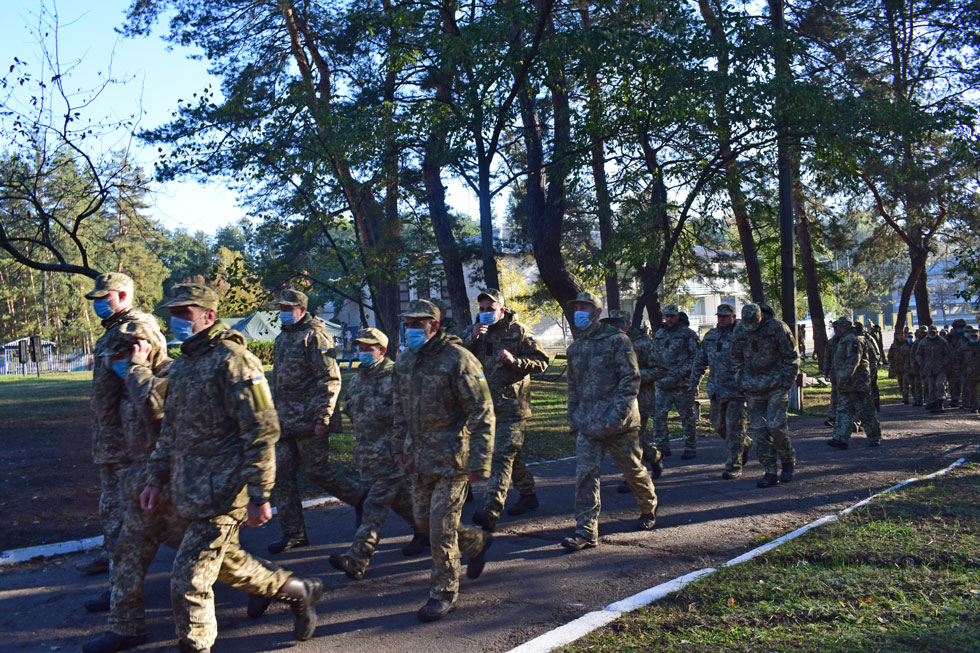
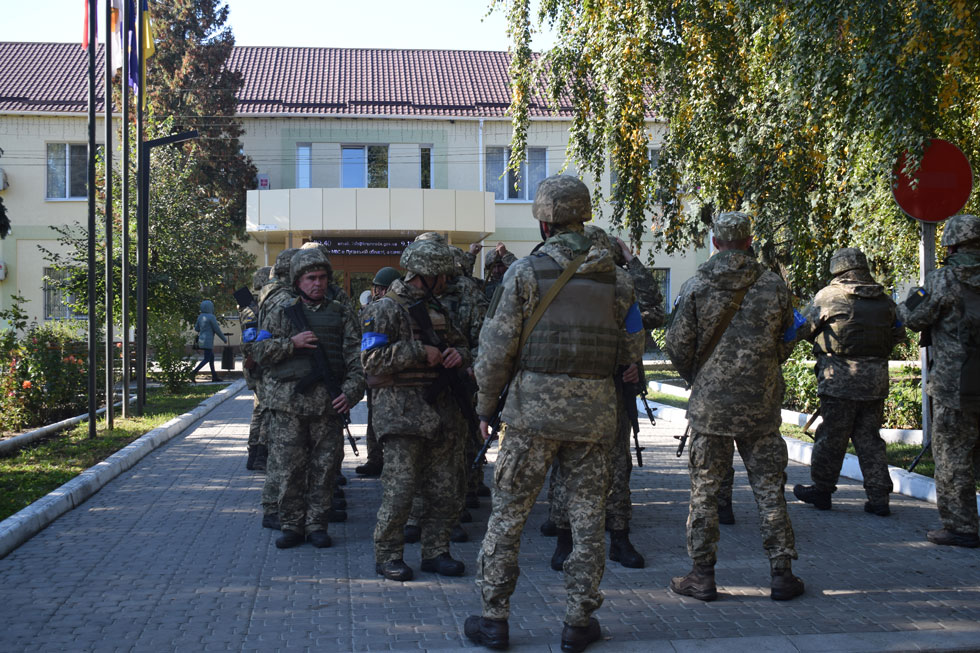
During the exercises in Kreminna
In addition, they were inspecting the vehicle (car) in which, according to the legend of the exercises, weapons were transported. According to Rostyslav Rehinskyi, the TD servicemen can do this only together with the police, and during the exercises, they practiced these actions together.
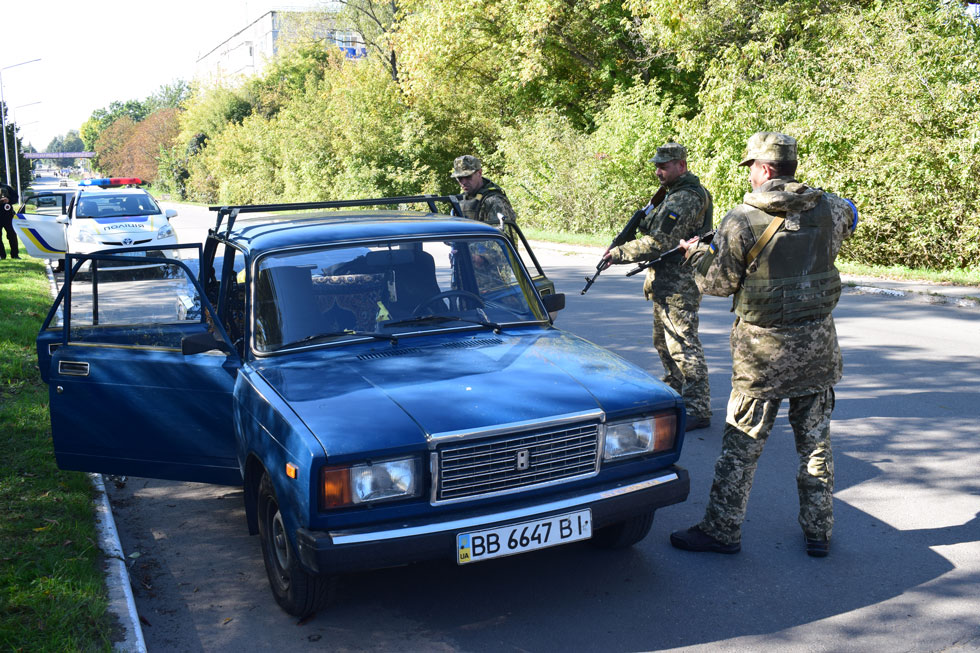
The car is being inspected during the training together with the police representatives
Due to the fact that the DT fighters have different physical training, some of them really got tired and even lost weight during the exercises, others admitted that they managed to miss their family and "unharmed" life over the period 10 days. However, the training was an interesting adventure for most participants, an opportunity to demonstrate their and gain some new skills.
Dmytro Ryzhko, a 29-year-old citizen of Rubizhne, is one of those who got used to physical activity: he served in ATO/JFO for several years.
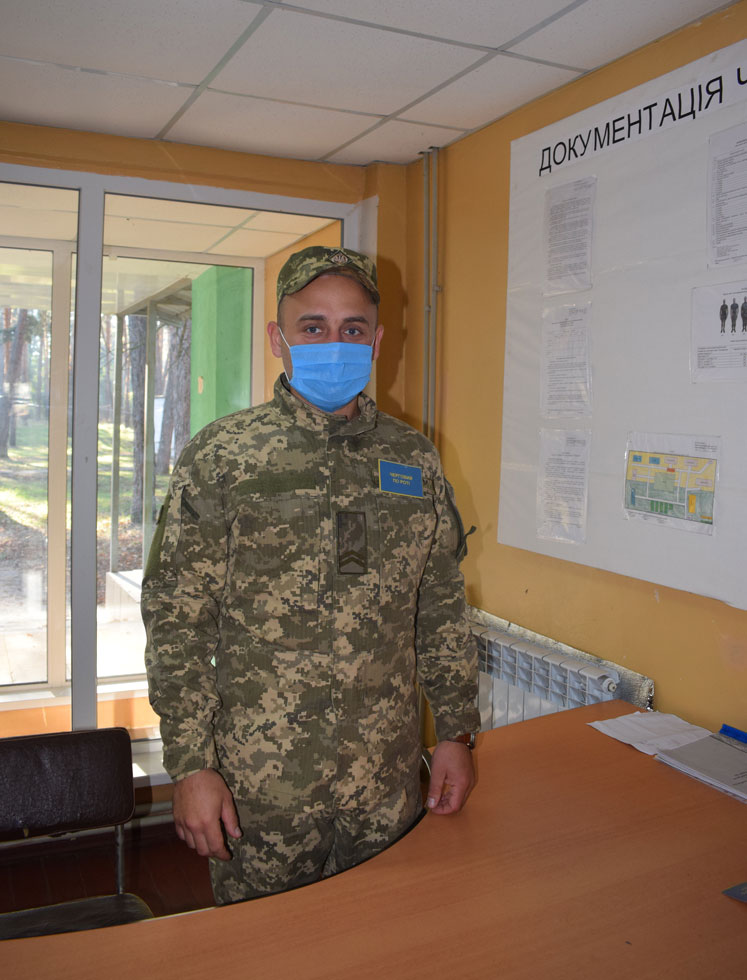
Dmytro Ryzhko
Dmytro is currently the commander of the rifle squad. He is convinced that such training is very important and useful, and this applies to many aspects: "We have the opportunity to get an additional specialty and useful skills". In addition, he said, being in a training camp promotes community spirit.
By the way, according to Olena Mokrenchuk, the first exercises of the TD participants, which took place several years ago, showed that this – team cohesion – is a weak point in territorial defense. Because its participants do not have the "army" skills.
– If a person comes to an operating army unit, he unintentionally accepts certain standards of interaction and coexistence, - Olena says. - He perceives the existing hierarchy, the need to obey the commander and trust those around you.
Almost no one in the TD units had such skills at the beginning of the war: they achieved coherence in battles and learned confidence in the commander and the comrades under the enemy fire.
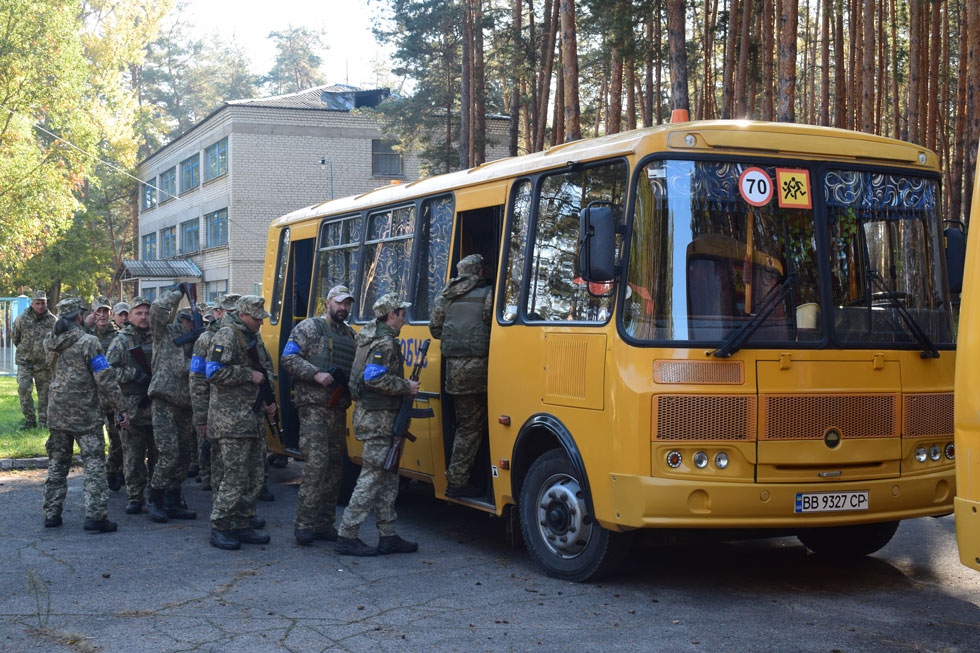
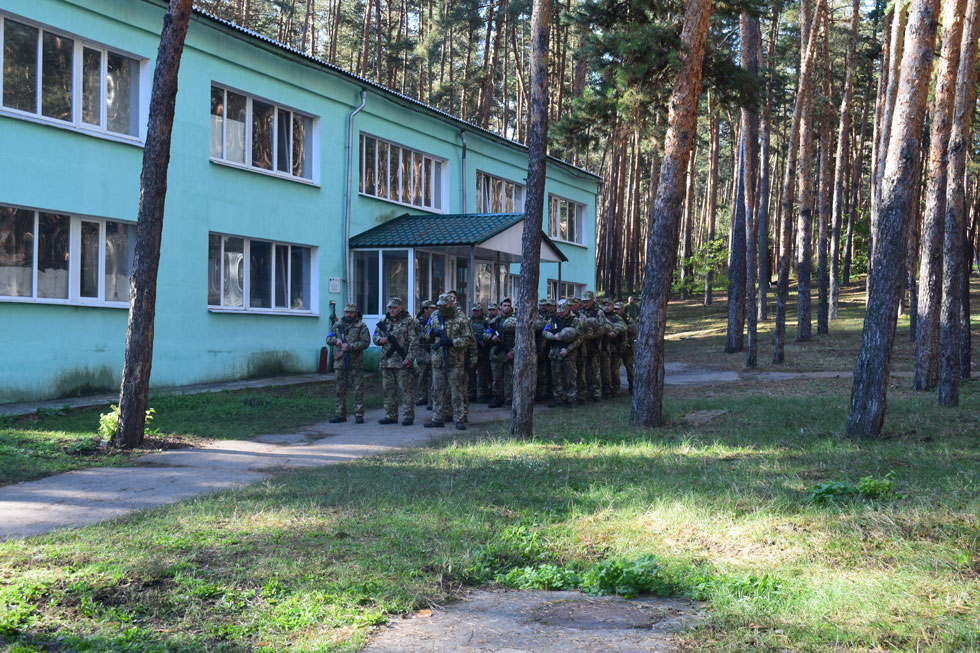
The training took place on the base of the former children's camp "Dream"
New kind of the new army
Forty-five-year-old Oleh Holod, a resident of Rubizhne, Luhansk oblast, is a marine who has undergone six rotations in ATO/JFO since 2015.
– Territorial defense is a military branch that is actively developing, and I am going to serve there under contract, - Oleh, whose contract with the AFU military unit has recently expired, says.
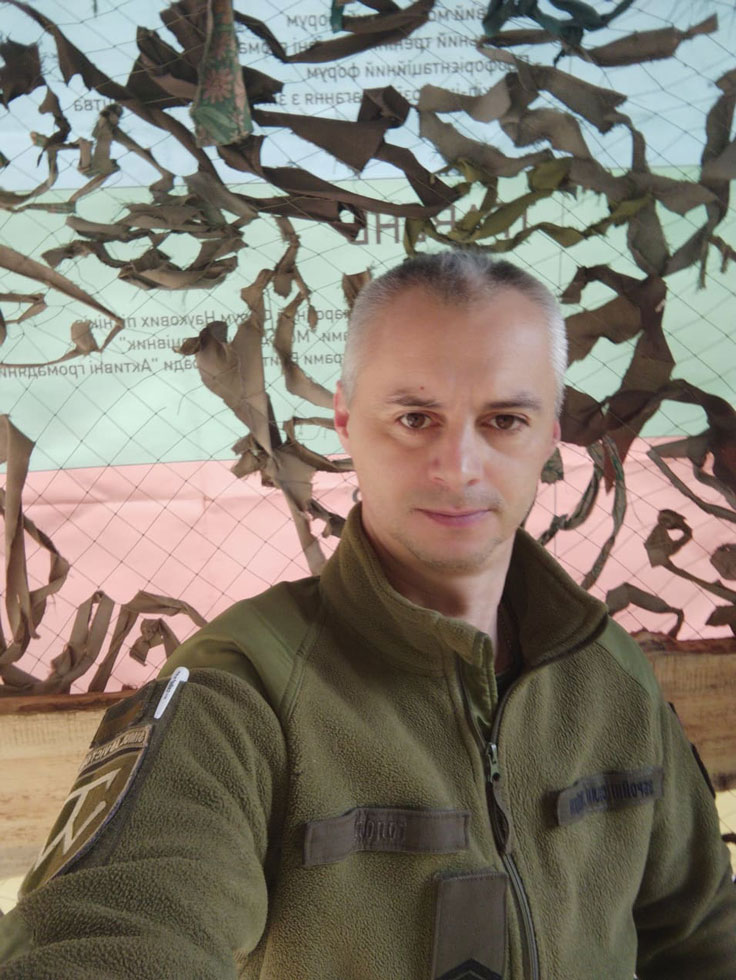
Oleh Holod
The man is attracted by the "legitimacy" and standardization of the TD activities, finally enshrined at the legislative level. "Guerilla warfare" or even semi-guerrilla warfare always alerted him. That is why he never served in volunteer battalions – only in units of the Armed Forces of Ukraine.
Regarding the AFU reforming, Oleh is convinced that it is absolutely necessary.
– After all, the main principle of the Soviet-era army was "to fight not with skill, but with number", and this is wrong. Sending us on mission, one of my commanders said, "The main thing is that you all come back alive". And this is right. The AFU is not fighting with "meat", but with the training of each serviceman.
According to Oleh, the movement towards NATO standards is not going as fast as we would like, and one of the reasons for this is the resistance of certain officials from the AFU. After all, NATO standards provide for certain things that are difficult to get used to by people who think of the Soviet-era standards, and this applies to all aspects, including living, provision and nutrition.
New principles are being followed, for example, at the Yavoriv training area in the Lviv oblast – the largest military training facility not only in Ukraine, but also in Europe. NATO instructors work with the Ukrainian military and cadets here. Even the food is based on the NATO standards – buffet style. In the dining room, soldiers take on trays what they think is necessary (of the two options offered). Cadets, officers and privates – all stand in general queue. There are no separate tables or separate meals for officers.
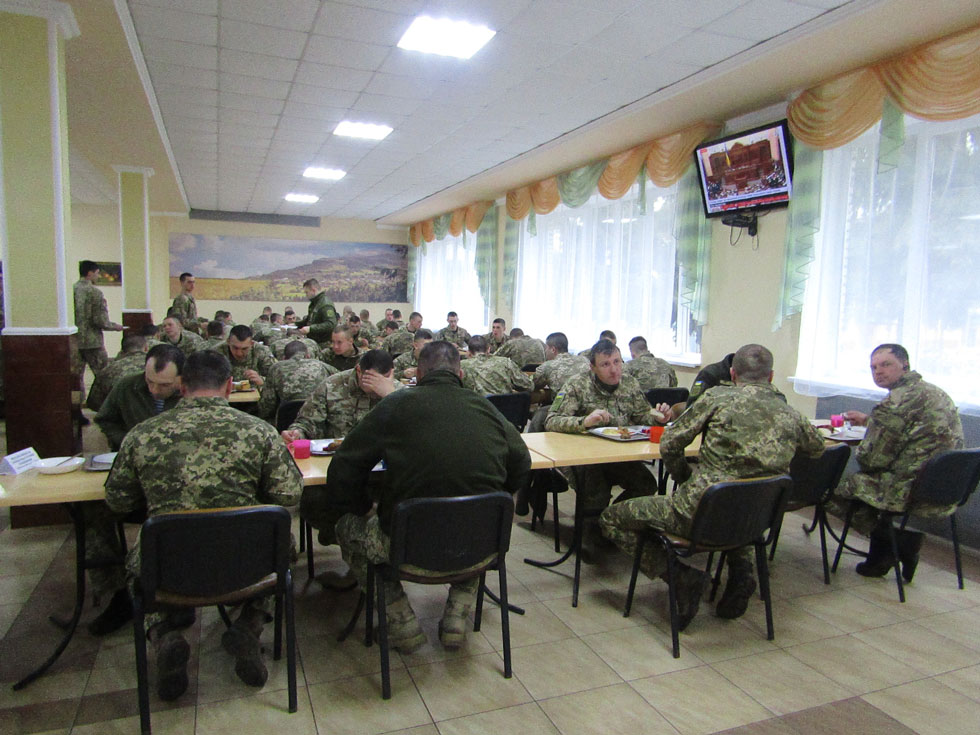
Oleh Holod considers one of the main reasons for the opposition of some officials to the introduction of the "NATO" norms to be the principle of determining the amount of salary: "It depends on the position in our country, and by the NATO standards – on the rank", - Oleh says.
That is why a metropolitan official in the Ukrainian system receives a much higher salary than a soldier or sergeant on the front line. And this is one of the stereotypes that we still have to overcome on the way to reforming the AFU.
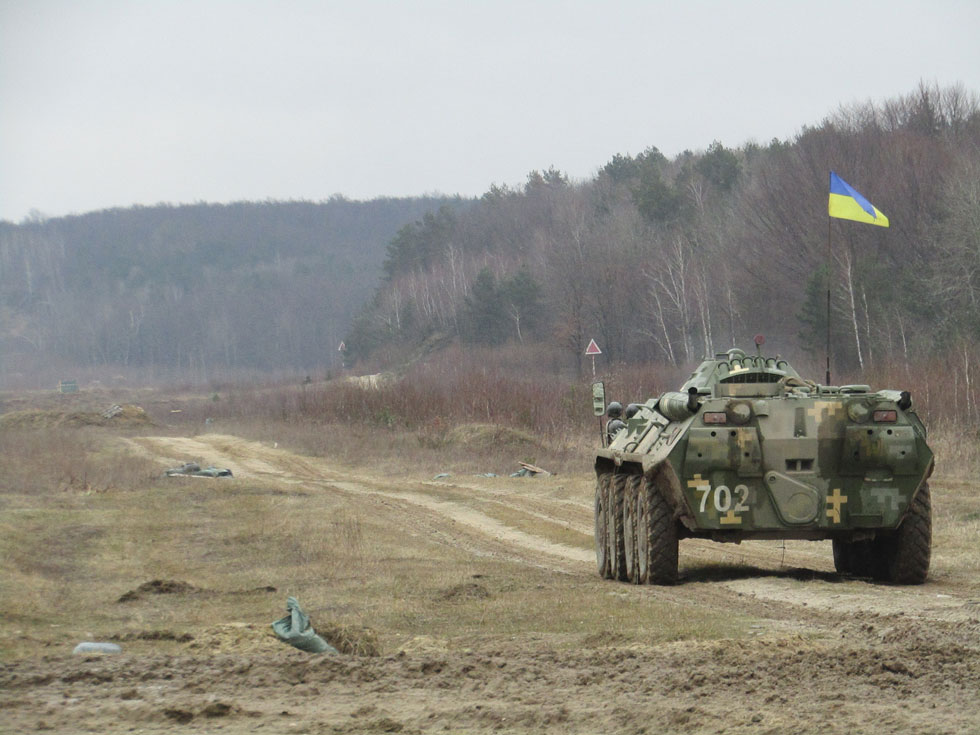
Yulia Sabayeva, Luhansk oblast, specially for OstroV
Photo by the author, Olena Mokrenchuk and Oleh Holod
